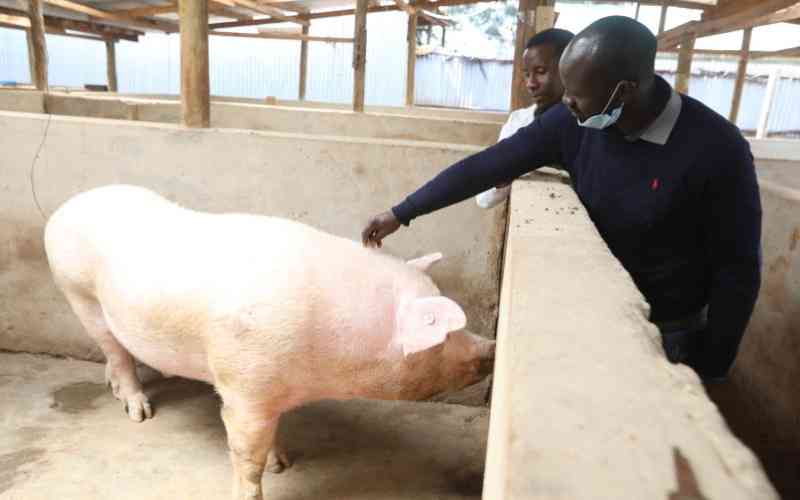×
The Standard e-Paper
Fearless, Trusted News

Eldoret Technical Training Institute farm in Eldoret. The farm is used as a training facility. [Kevin Tuno, Standard]
When Eldoret Technical Training Institute set up a pig farm, ten years ago, locals at Kapseret village were not a happy lot because they felt this was culturally wrong.